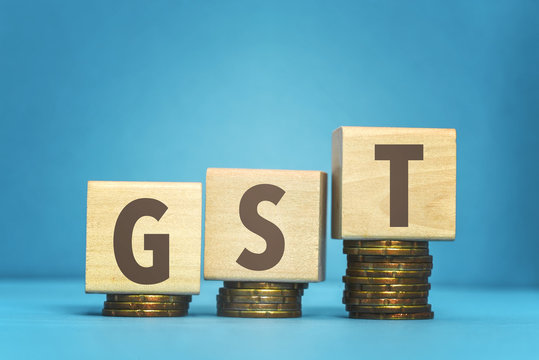Assessment under GST
Section 2(11) of CGST Act2017 defined the assessment to determine the tax liabilities under this Act and includes the self-assessment, re-assessment, provisional assessment, summary assessment and best judgement assessment. On a broader sense- assessment means estimation of tax liabilities.
- (A)Self-assessment Section 59 of CGST Act /SGST Act 2017_Section of the 59 of the act every registered person shall self-assess the tax payable on supplied made during tax period and file the return of each tax period as per section 39 of the CGST Act.
- (B)Section 60 Provisional Assessment under of the CGST Act/SGST Act 2017: Section 60 of the Act enumerates that the provisional assessment is carried out in case where a taxable person is unable to determine his value of supply or rate of taxes applicable there to the Proper officer may within 90 days from the receipt of application along with required document issue an order specifying the rate and value which tax has to pay on provisional basis. In terms of the section 60(2) a registered person are bound to execute the bond and furnish surety or security in the form of Bank Guarantee which shall not exceeding 25% of the amount covered under the bond.
- (C)Assessment of Non Filers of Returns: As per Section 62 of the act empowers the proper officer to make best judgement assessment If the registered person fails to furnish the return under Section 39 or final return under section 45 even after submission of notice under Section 46.
- If the registered person fails to file the returns as per the defined sections and rules or where a taxable person fails to obtain the registration or Whose registration is cancelled and they are liable to tax, then the proper officer assess the tax liability to the best of his judgment and issues the order of best judgment assessment within a period of 5 years from the date of Annual Return of the financial year to which tax not paid relates.
- The registered person will be given 15 days’ time for submission of their reply after issue of best judgement notice. Assessment of Unregistered Person:
- (D)As per Section 63 , a taxable person is liable to be registered in accordance with the provision of the Section 22 of Section 24 but fails to obtain registration or whose registration has been cancelled on account of circumstances mentioned in Section 29(2) but who was liable to pay tax , the assessing officer may assess the tax liability to the best of his judgement for the relevant tax period and issue assessment order within five years from the date of furnishing annual return i.e. 31st December following the financial year to which the tax paid relates.
- (E)Assessment in Special Cases under GST (Section 64): As per Section 64 (1), If the proper officer is having such evidences which proves that there is some discrepancies in the tax liability, then he may with the previous permission of the Joint Commissioner or Addl. Commissioner assess the tax liability in the interest of the revenue. Further, If the taxable person to whom the tax liability is imposed is not ascertainable, then the person in charge shall be liable to pay the assessed tax or any other dues.
Audit Under GST
In GST, there are mainly three types of Audits: These are
- 1.GST Audit u/s 35(5) of Act, if turnover exceeds prescribed limit (i.e Rs. 2 Crore)
- 2. GST Audit by tax authorities u/s 65.
- 3. Special GST audit direction from department u/s 66
(1)GST Audit u/s 35(5) of the Act:
Section 35(5) of the GST Act mandates an audit for businesses with an annual turnover exceeding ₹2 crore. The audit ensures that the taxpayer has properly complied with the GST provisions, including accurate reporting of sales, purchases, taxes, and input tax credits. The audit report (in GSTR-9C) helps reconcile the taxpayer’s financial records with GST returns, promoting transparency and compliance.
(2)Audit under GST by Tax Authorities Section-65
Section 65(1) allows the Commissioner of GST to undertake an audit of any taxpayer’s business at any time.
- The audit is conducted to verify if the taxpayer is correctly maintaining the required records, paying the correct amount of taxes, and complying with the GST law.
- Scope of Audit: The Audit can cover a range of documents , such as
- Financial Records
- Tax Return
- Invoices
- Other documents that can help to verify the return
- Audit Process:
- The tax payer will be informed through a notice regarding Audit
- The Audit will be conducted at the Registered Party Business Place or other place decided by the tax authorities
- The Audit must be completed within the 3 months from the date of commencement of Audit
- The period can be extended if necessary but the extension is subject to approval of Commissioner.
(3) Section 66 of GST_ Special Audit :
(a) Section 66 of the GST Act provides the framework for conducting a special audit when there are serious concerns regarding a taxpayer’s compliance with the GST law.
(b)The special audit is a detailed examination of the taxpayer’s accounts, financial records, and tax returns to uncover discrepancies or fraudulent activities.
(C)The audit is conducted by an independent auditor appointed by the GST Commissioner, and it helps the authorities identify cases of tax evasion, underreporting, or other violations. If discrepancies are found, the taxpayer may be liable for additional taxes, interest, penalties, or further legal action.

